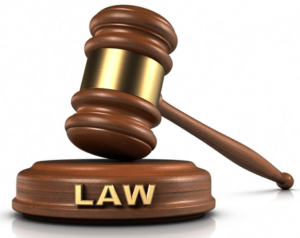Supreme court strikes out Barker-Vormavor’s application
 The Supreme Court has struck out as withdrawn an application filed by lawyers for Oliver Mawuse Barker-Vormavor, the Convenor of the Fix the Country Movement.
The Supreme Court has struck out as withdrawn an application filed by lawyers for Oliver Mawuse Barker-Vormavor, the Convenor of the Fix the Country Movement.
Oliver’s lawyers had filed an application invoking the original jurisdiction and supervisory of the Supreme Court to intervene in his detention.
The applicant was seeking “a true and proper interpretation of whether by sending a person they have restricted, arrested or detained to a court, which has no jurisdiction to consider an application for bail in respect of that person, the police have discharged their duty under Article 14 (3) of the Constitution.”
He is also seeking an order of certiorari to be issued to the High Court to bring up its ruling dated February 17, this year before the Supreme Court to be quashed in relation to a writ of habeas corpus.
He is further seeking other orders that the Supreme Court may deem fit.
At the sitting, the five-member panel raised questions as to how an application would be invoking seeking to invoke its original jurisdiction and at the same time, also be invoking supervisory jurisdiction of the court.
“You have an individual’s liberty at stake. You embark on this journey to this Court. You want us to interpret this constitution in a mixed application. Your duty is to protect your client’s rights. Your priorities are mixed.”
The five-member panel contended that Oliver’s lawyers could have focused on appealing against the decision of the district court.
“If you take a purely academic decision, it will not work.
Your client is in distress, and you should be seeking his freedom,” the Supreme Court said.
A member of the panel, Justice Nene Amegatse, asked lawyers for Barker-Vormavor to advise him on some pronouncements, adding that he must remain calm and focus on seeking his freedom.
Dr Justice Srem-Sai, one of the lawyers of Barker-Vormavor after moving the motion invoking the supervisory jurisdiction of the court over the ruling of the High Court in writ of habeas corpus, withdrew same.
It was the case of Barker-Vormavor that there were errors on the face of the record of the ruling of the High Court.
According to the lawyers, it was wrong for the High Court to assume the jurisdiction of interpreting the law.
Madam Diana Asonoba Dapaah, Deputy Attorney General, held that the procedure adopted by Barker-Vormavor’s lawyers was wrong and that under the rules of the court, the respondents had 14 days to respond to the writ, but that date had not elapsed.
Lawyers for Barker-Vormawor had sued the Inspector General of Police and the Attorney General over their decision to put the lawyer and activist before a district court rather than a court that could decide on his rights.
Barker-Vormavor had been put before a district court in Ashaiman over a treason felony charge.
Source: GNA
